Abstract
1. We investigated the central role of corticotrophin-releasing factor (CRF-41) in psychological stress-induced responses, including cardiovascular, thermoregulatory and locomotive activity in free-moving rats. 2. Psychological stress was induced by cage-switch stress. After rats were placed in the novel environment, blood pressure, heart rate, body temperature and locomotive activity significantly increased. The intracerebroventricular (I.C.V.) injection of alpha-helical CRF(9-41), a CRF-41 receptor antagonist, significantly attenuated the stress-induced hypertension, tachycardia, hyperthermia and increase in locomotive activity. However, in unstressed rats, the I.C.V. injection of alpha-helical CRF(9-41) had no effect on physiological parameters measured in this study. 3. In unstressed rats, the I.C.V. injection of CRF-41 (1 microgram and 10 micrograms) increased blood pressure, heart rate, body temperature and locomotive activity in a dose-dependent manner. The changes in these responses were quite similar to those observed during cage-switch stress. 4. The results suggest that central CRF-41 plays an important role in psychological stress-induced hypertension, hyperthermia, tachycardia and increase in locomotive activity. However, it is likely that central CRF-41 does not contribute to normal cardiovascular and body temperature regulation when rats are free from stress.
Full text
PDF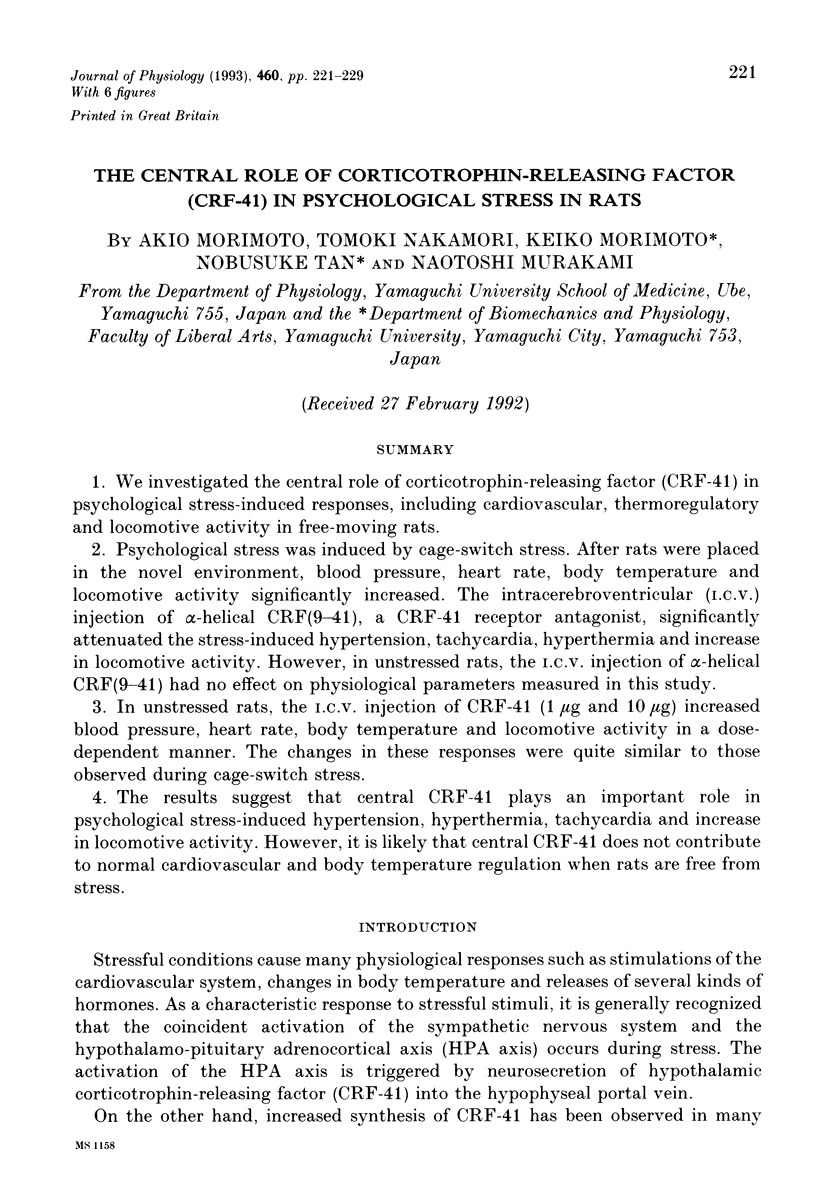
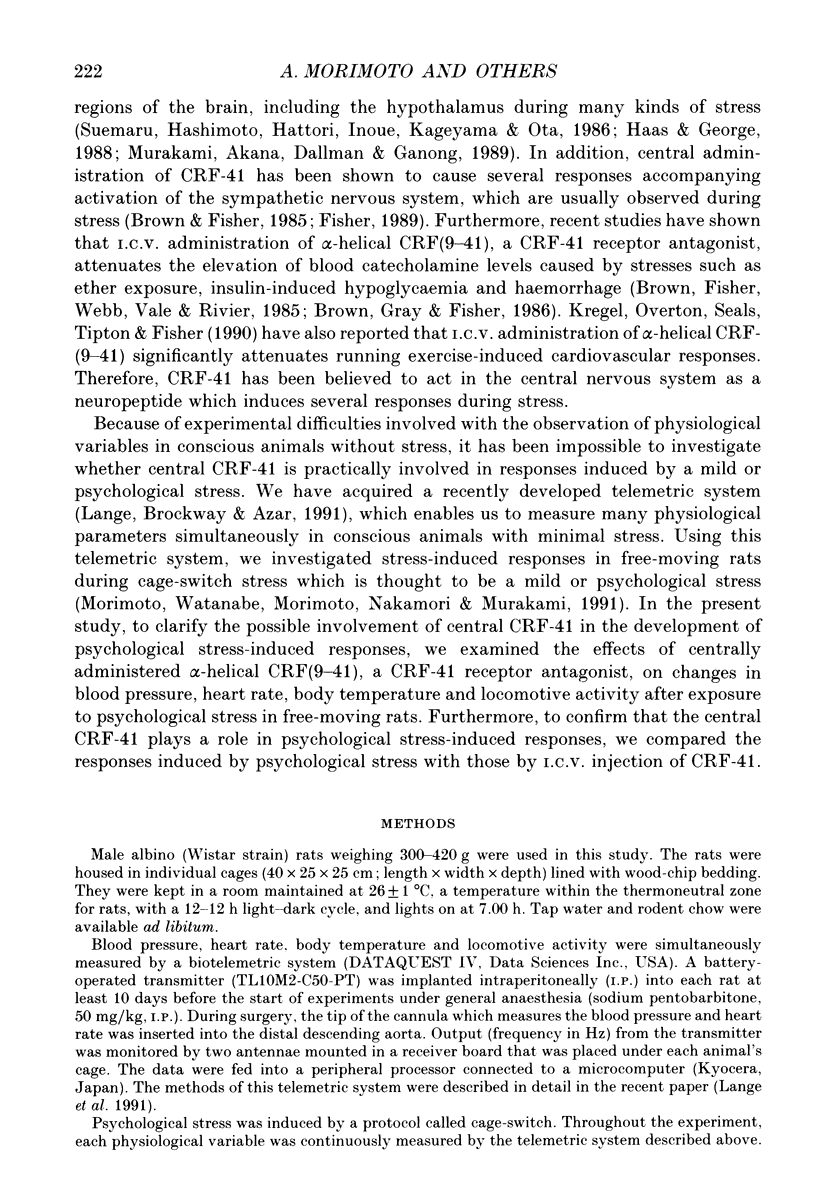
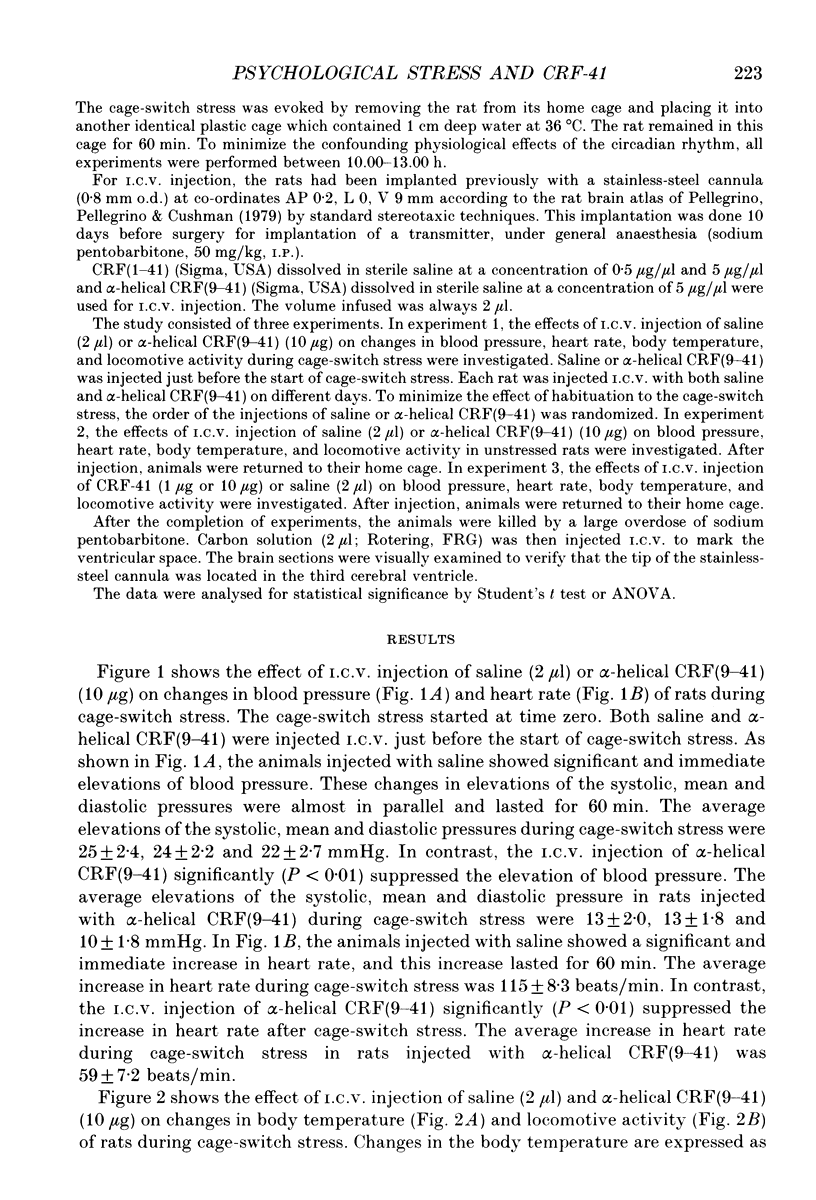
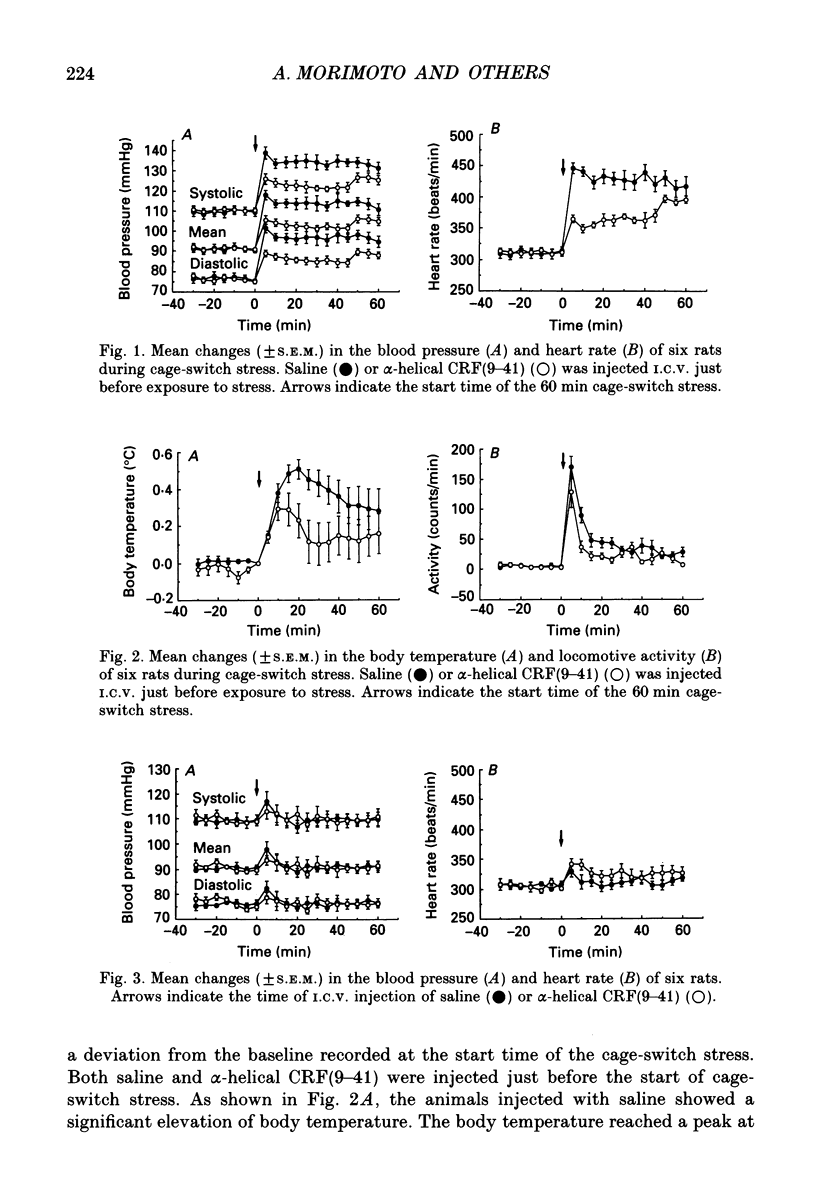
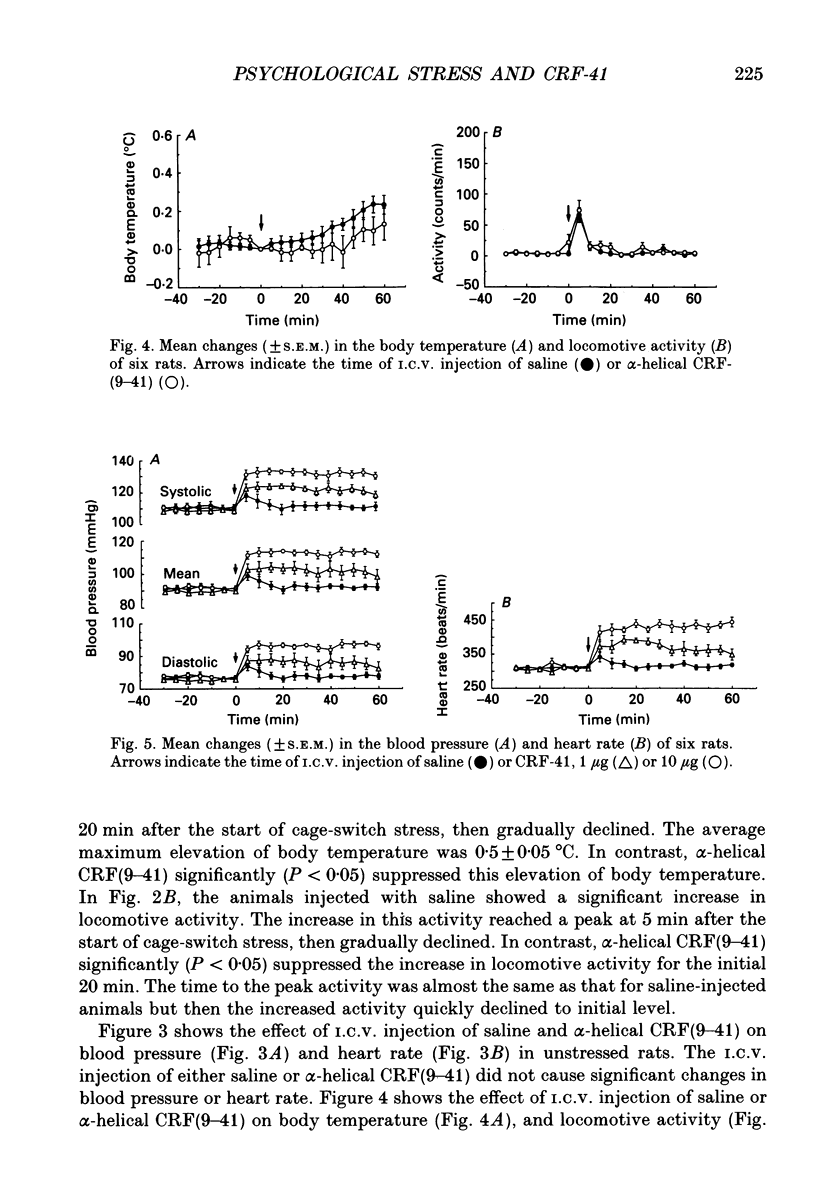
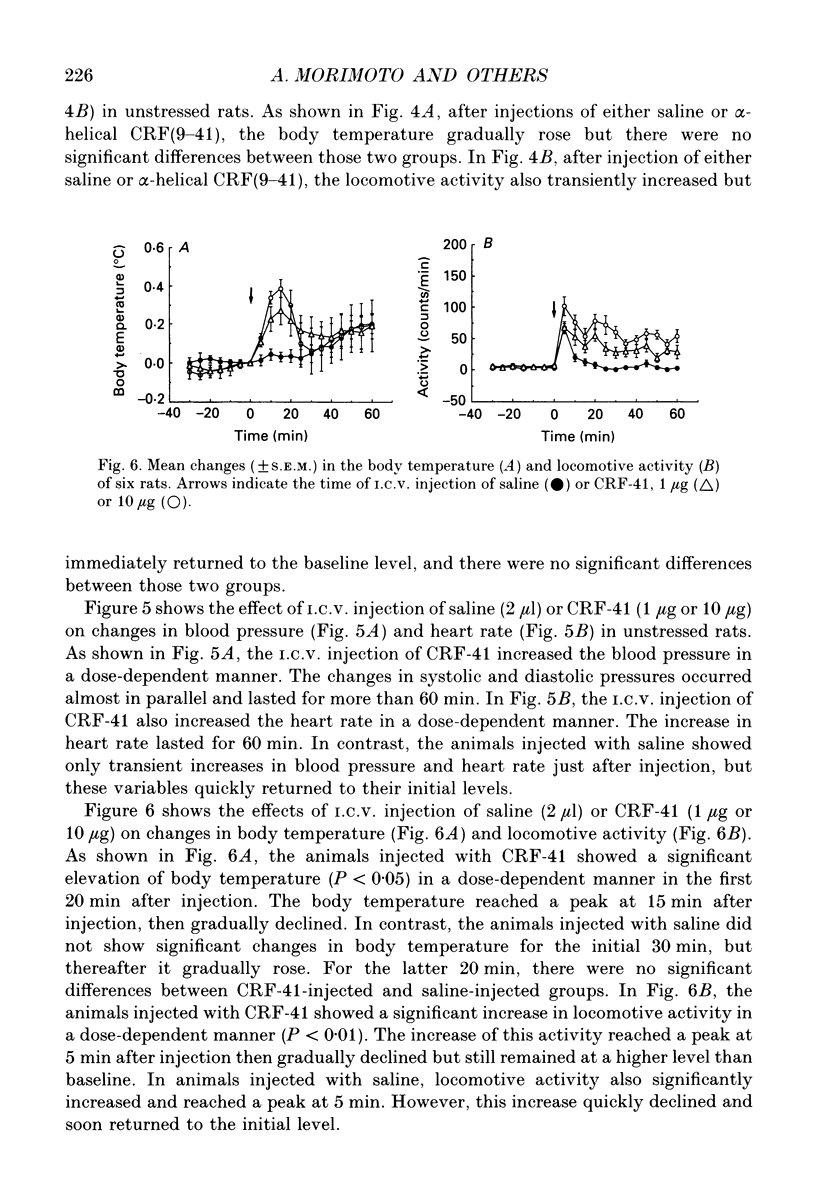
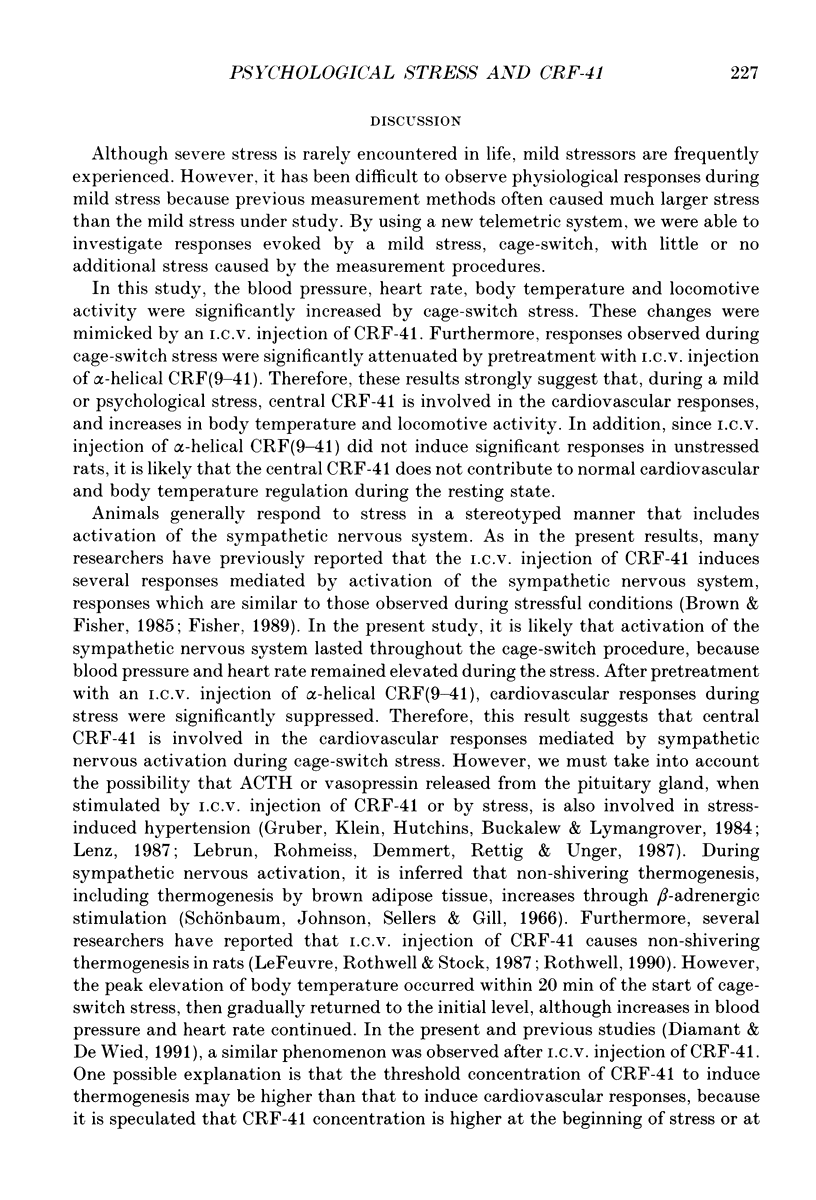
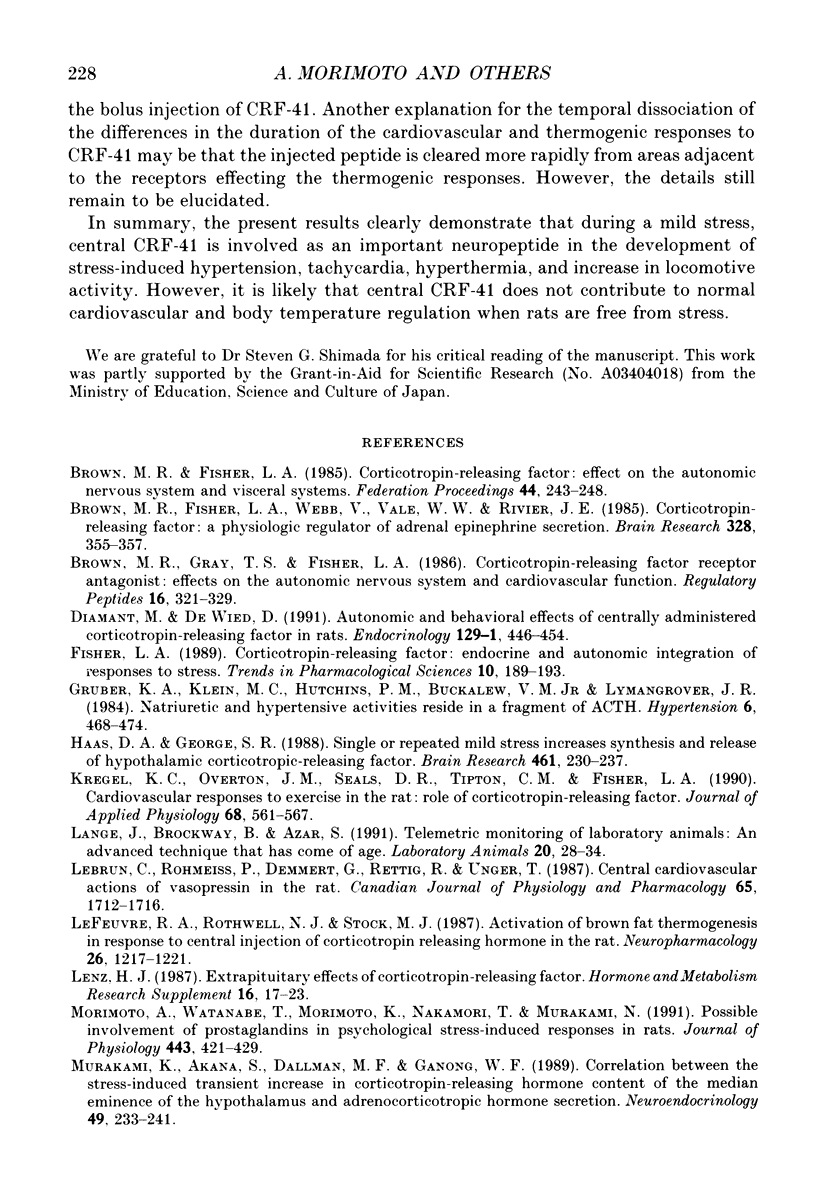
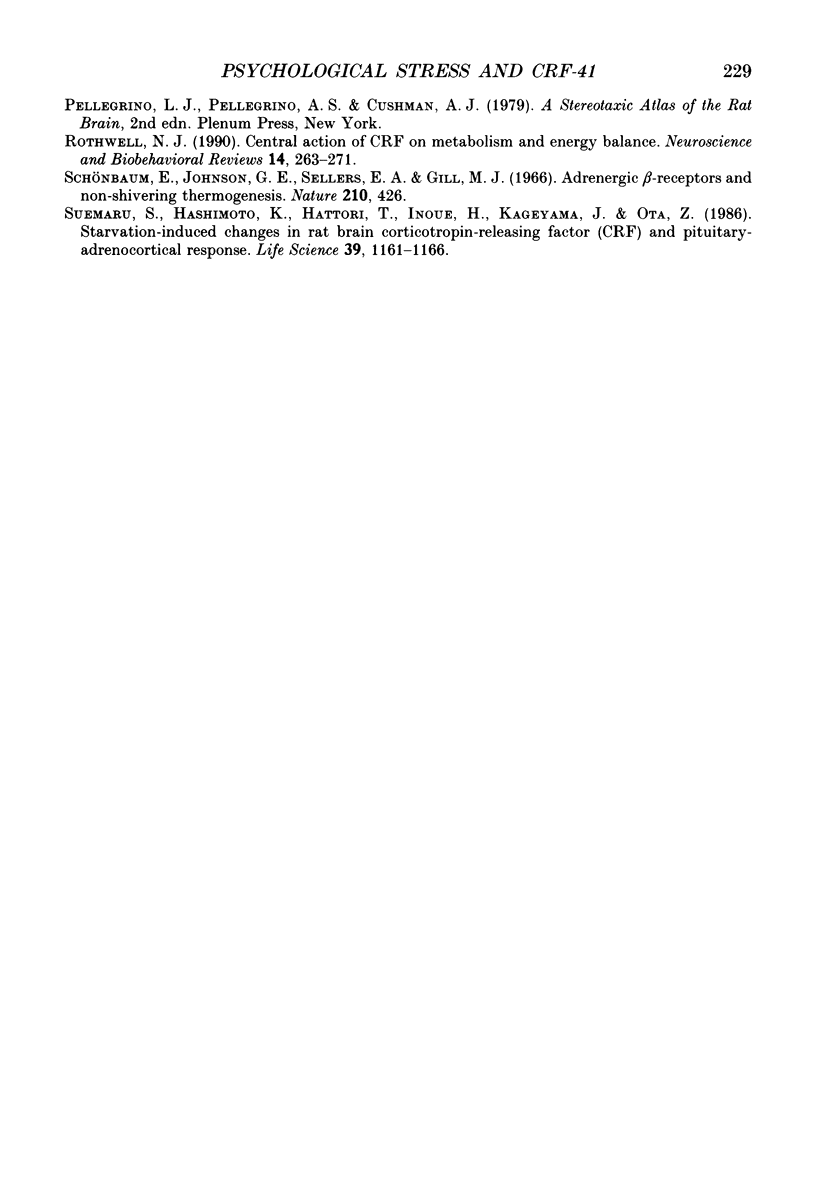
Selected References
These references are in PubMed. This may not be the complete list of references from this article.
- Brown M. R., Fisher L. A. Corticotropin-releasing factor: effects on the autonomic nervous system and visceral systems. Fed Proc. 1985 Jan;44(1 Pt 2):243–248. [PubMed] [Google Scholar]
- Brown M. R., Fisher L. A., Webb V., Vale W. W., Rivier J. E. Corticotropin-releasing factor: a physiologic regulator of adrenal epinephrine secretion. Brain Res. 1985 Mar 4;328(2):355–357. doi: 10.1016/0006-8993(85)91048-0. [DOI] [PubMed] [Google Scholar]
- Brown M. R., Gray T. S., Fisher L. A. Corticotropin-releasing factor receptor antagonist: effects on the autonomic nervous system and cardiovascular function. Regul Pept. 1986 Dec 30;16(3-4):321–329. doi: 10.1016/0167-0115(86)90032-7. [DOI] [PubMed] [Google Scholar]
- Diamant M., de Wied D. Autonomic and behavioral effects of centrally administered corticotropin-releasing factor in rats. Endocrinology. 1991 Jul;129(1):446–454. doi: 10.1210/endo-129-1-446. [DOI] [PubMed] [Google Scholar]
- Fisher L. A. Corticotropin-releasing factor: endocrine and autonomic integration of responses to stress. Trends Pharmacol Sci. 1989 May;10(5):189–193. doi: 10.1016/0165-6147(89)90236-8. [DOI] [PubMed] [Google Scholar]
- Gruber K. A., Klein M. C., Hutchins P. M., Buckalew V. M., Jr, Lymangrover J. R. Natriuretic and hypertensive activities reside in a fragment of ACTH. Hypertension. 1984 Jul-Aug;6(4):468–474. doi: 10.1161/01.hyp.6.4.468. [DOI] [PubMed] [Google Scholar]
- Haas D. A., George S. R. Single or repeated mild stress increases synthesis and release of hypothalamic corticotropin-releasing factor. Brain Res. 1988 Oct 4;461(2):230–237. doi: 10.1016/0006-8993(88)90254-5. [DOI] [PubMed] [Google Scholar]
- Kregel K. C., Overton J. M., Seals D. R., Tipton C. M., Fisher L. A. Cardiovascular responses to exercise in the rat: role of corticotropin-releasing factor. J Appl Physiol (1985) 1990 Feb;68(2):561–567. doi: 10.1152/jappl.1990.68.2.561. [DOI] [PubMed] [Google Scholar]
- LeFeuvre R. A., Rothwell N. J., Stock M. J. Activation of brown fat thermogenesis in response to central injection of corticotropin releasing hormone in the rat. Neuropharmacology. 1987 Aug;26(8):1217–1221. doi: 10.1016/0028-3908(87)90272-3. [DOI] [PubMed] [Google Scholar]
- Lebrun C., Rohmeiss P., Demmert G., Rettig R., Unger T. Central cardiovascular actions of vasopressin in the rat. Can J Physiol Pharmacol. 1987 Aug;65(8):1712–1716. doi: 10.1139/y87-269. [DOI] [PubMed] [Google Scholar]
- Lenz H. J. Extrapituitary effects of corticotropin-releasing factor. Horm Metab Res Suppl. 1987;16:17–23. [PubMed] [Google Scholar]
- Morimoto A., Watanabe T., Morimoto K., Nakamori T., Murakami N. Possible involvement of prostaglandins in psychological stress-induced responses in rats. J Physiol. 1991 Nov;443:421–429. doi: 10.1113/jphysiol.1991.sp018841. [DOI] [PMC free article] [PubMed] [Google Scholar]
- Murakami K., Akana S., Dallman M. F., Ganong W. F. Correlation between the stress-induced transient increase in corticotropin-releasing hormone content of the median eminence of the hypothalamus and adrenocorticotropic hormone secretion. Neuroendocrinology. 1989 Mar;49(3):233–241. doi: 10.1159/000125122. [DOI] [PubMed] [Google Scholar]
- Rothwell N. J. Central effects of CRF on metabolism and energy balance. Neurosci Biobehav Rev. 1990 Fall;14(3):263–271. doi: 10.1016/s0149-7634(05)80037-5. [DOI] [PubMed] [Google Scholar]
- Schönbaum E., Johnson G. E., Sellers E. A., Gill M. J. Adrenergic beta-receptors and non-shivering thermogenesis. Nature. 1966 Apr 23;210(5034):426–426. doi: 10.1038/210426a0. [DOI] [PubMed] [Google Scholar]
- Suemaru S., Hashimoto K., Hattori T., Inoue H., Kageyama J., Ota Z. Starvation-induced changes in rat brain corticotropin-releasing factor (CRF) and pituitary-adrenocortical response. Life Sci. 1986 Sep 29;39(13):1161–1166. doi: 10.1016/0024-3205(86)90347-4. [DOI] [PubMed] [Google Scholar]


